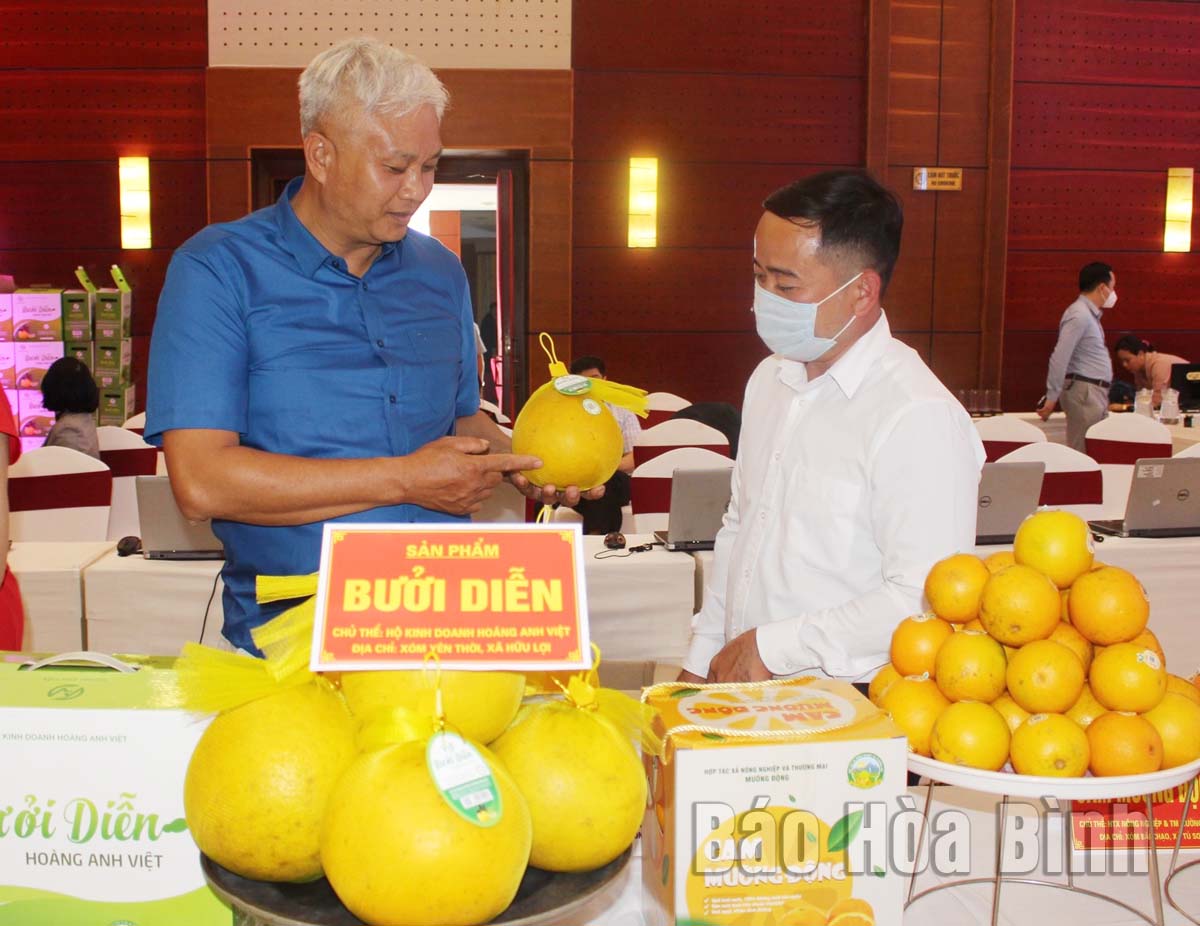
(HBO) – Yen Thuy district in Hoa Binh province now has 880
ha of pomelo cultivation, of which 415 ha are in harvest season and nearly 120
ha in Ngoc Luong, Huu Loi, Bao Hieu communes, and Hang Tram town are cultivated
following VietGAP and organic standards. The average annual income from local
Dien pomelo orchards is from 300 to 400 million VND per ha.

Yen Thuy district's Dien pomelo is recognised as a
provincial-level three-star product under the One Commune One Product programme
in Hoa Binh.
Hoang Anh Viet, from Huu Loi commune’s Yen Thoi hamlet, said
the Dien pomelo trees are easy to grow and care for, with their fruits favoured
by the market, ensuring stable output and high economic benefits.
The district has many households growing the fruit on large
scale for high value, particularly the orchard of Ta Huu Hau in Hang Tram town,
who plant Dien pomelo and orange trees on an area of over 2ha, earning an
average annual income of about 400 million VND (17,575 USD).
On September 9, 2019, the National Office of Intellectual
Property issued Decision No. 76495/QD-SHTT on granting a certificate of
trademark registration for the Yen Thuy pomelo.
Following the VietGAP standards, pomelo growers have paid
attention to the quality of land, water sources, and use bio-products. Famous
for its aroma and sweet, juicy taste, the fruit is in favour of consumers in
Hanoi, Hai Phong, Quang Ninh, and Ninh Binh, among others.
Bui Van Hai, Chairman of the Yen Thuy People’s Committee,
said the local Dien pomelo has gradually gained its foothold on the market.
He informed that the district is focusing on extending its
VietGap-certificated pomelo areas to help increase the quality and value,
running communications activities to raise farmers’ responsibility in
sustaining the pomelo quality, and boosting the formation of value chains./.
According to data from the Hoa Binh Provincial Party Committee, the industrial production index for the first six months of 2025 is estimated to have increased by 20% compared to the same period last year. This marks the highest year-on-year growth rate for this period since 2020.
In the first six months of 2025, Hoa Binh province’s export turnover was estimated at 1.145 billion USD, marking an 18.11% increase compared to the same period in 2024. Import turnover was estimated at $ 804 million, a 17.15% increase, which helped the province maintain a positive trade balance.
The lives of the ethnic minority farmers in Tan Lac district have gradually improved thanks to the new directions in agricultural production. This is a testament to the collective strength fostered through the professional associations and groups implemented by various levels of the district’s Farmers’ Union.
With the motto the "product quality comes first,” after nearly one year of establishment and operation, Muong village’s Clean Food Agricultural and Commercial Cooperative, located in Cau Hamlet, Hung Son Commune (Kim Boi district), has launched reputable, high-quality agricultural products to the market that are well-received by consumers. The products such as Muong village’s pork sausage, salt-cured chicken, and salt-cured pork hocks have gradually carved out a place in the market and they are on the path to obtaining the OCOP certification.
In the past, the phrase "bumper harvest, rock-bottom prices" was a familiar refrain for Vietnamese farmers engaged in fragmented, small-scale agriculture. But today, a new spirit is emerging across rural areas of Hoa Binh province - one of collaboration, organisation, and collective economic models that provide a stable foundation for production.
Maintaining growing area codes and packing facility codes in accordance with regulations is a mandatory requirement for agricultural products to be eligible for export. Recently, the Department of Agriculture and Environment of Hoa Binh province has intensified technical supervision of designated farming areas and packing facilities to safeguard the "green passport" that enables its products to access international markets.



